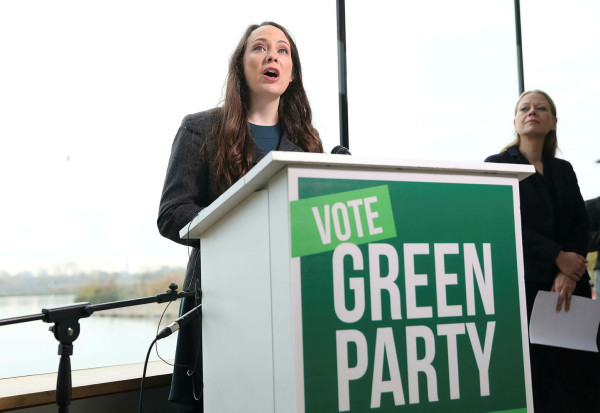

Its manifesto — called If Not Now, When? published today (November 19) — proposed to merge national insurance, capital gains tax, inheritance tax, dividend tax and income tax into one ‘consolidated income tax’ where all income is treated the same for tax purposes.
The Greens estimated the move would cost £22bn to implement but would bring an extra £20bn a year into the public purse by closing tax avoidance loopholes and “shining a light” on the “corners of the economy where the richest stash their wealth”.
It states: “Tax avoiders can shift their money in and out of different income and asset categories, switching category just before the tax official catches up with them.
“A whole tax avoidance industry exists to guide those prepared to pay to wriggle out of tax through the cracks in the system.”
The consolidated income tax would also mean income from investments and assets was taxed at the same level as income from work. The party said this would “end the injustice” of those who worked for incomes being taxed more than income derived from wealth.
There is little detail as to what the rate of the consolidated income tax would be, however.
Laura Suter, personal finance analyst at AJ Bell, said: “If it’s set at the current basic rate of 20 per cent, that would be a massive giveaway for high earners, cutting their tax rate from a maximum of 45 per cent and handing a big income boost.
“Conversely, if it’s set at a higher rate, say 40 per cent, that would hit low income families with a whopping tax increase.”
The party also pledged a shake up of pensions tax by ending the “double taxation” of pension funds — currently the money is subject to corporation tax while in the fund and then taxed again as income when paid out to individual pensioners.
Other measures proposed included limiting pension tax relief to the basic rate of 20 per cent while reducing the tax-free cash entitlement to £40,000 (currently 25 per cent of the pension pot).
Quilter’s head of retirement policy, Jon Greer, said overall the Green’s pension policies were like “robbing Peter to pay Paul”.
He said: “While the Greens state they would help pensioners by ending the double taxation of pension funds...they controversially pledge to cap tax-free cash from pension funds at £40,000.
“This would mean people with funds in excess of £160,000 would not have any tax free cash allowance in their fund.”
Tom Selby, analyst at AJ Bell, said a reduction in the tax free cash entitlement would put the UK’s “fragile savings culture” at risk while the limit to tax relief would risk putting people off saving for retirement.
Other pension policies floated in the manifesto included increasing the state pension by £10 per week under the party’s Universal Basic Income system (where every UK adult receives sufficient funds to cover basic needs regardless of situation).
The Green Party also plans to overhaul both property and business tax.
For property, the party pledges to introduce a Land Value Tax which is “designed to redistribute wealth and help fix our broken housing market”.
Council tax and business rates would be replaced with this LVT which would charge the landowner a proportion of the capital value of the land each year, estimated to be about 1.4 per cent, and would be paid by landowners regardless of whether they lived on the land.
The tax would also absorb all taxes relating to owned land including stamp duty, capital gains, inheritance and income tax on land.
In terms of business, the party pledged to increase corporation tax to 25 per cent (up from 19 per cent) and close down on corporation tax loopholes by widening the definition of ‘profit’ to cover dividends, share buybacks, additions to cash holdings, payments to parent or subsidiary companies and other distributed income.
Other manifesto pledges included scrapping tuition fees and wiping the debt of those who paid £9,000 a year alongside affordable homes, an increased living wage, scrapping Trident and introducing a carbon tax on all fossil fuel imports.
imogen.tew@ft.com
What do you think about the issues raised by this story? Email us on fa.letters@ft.com to let us know.



